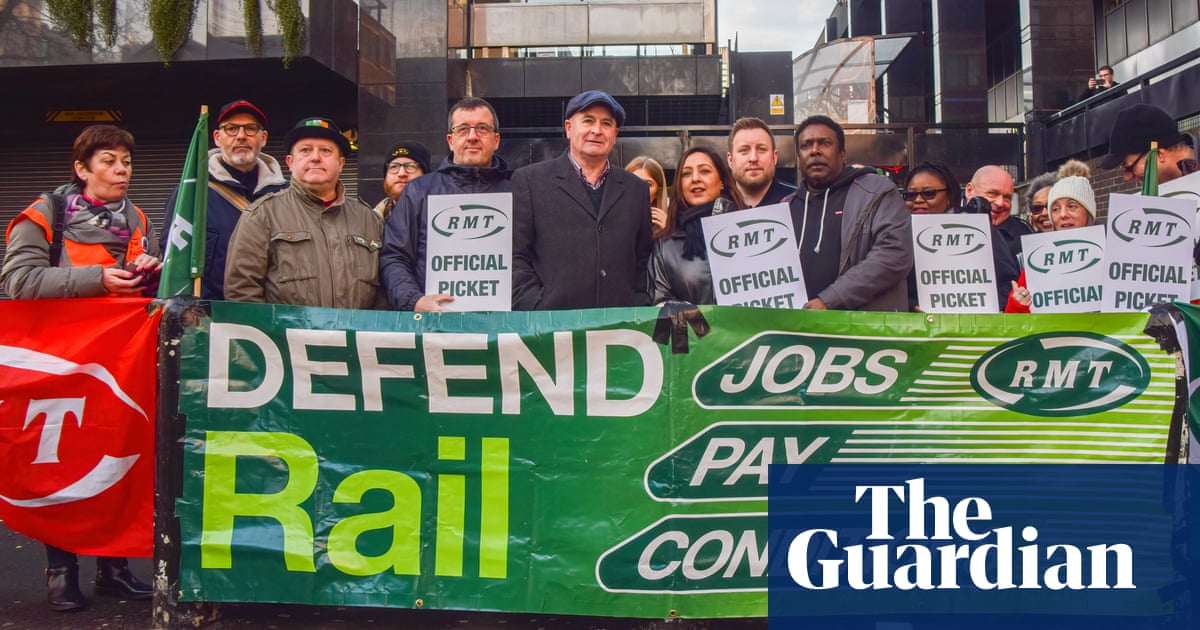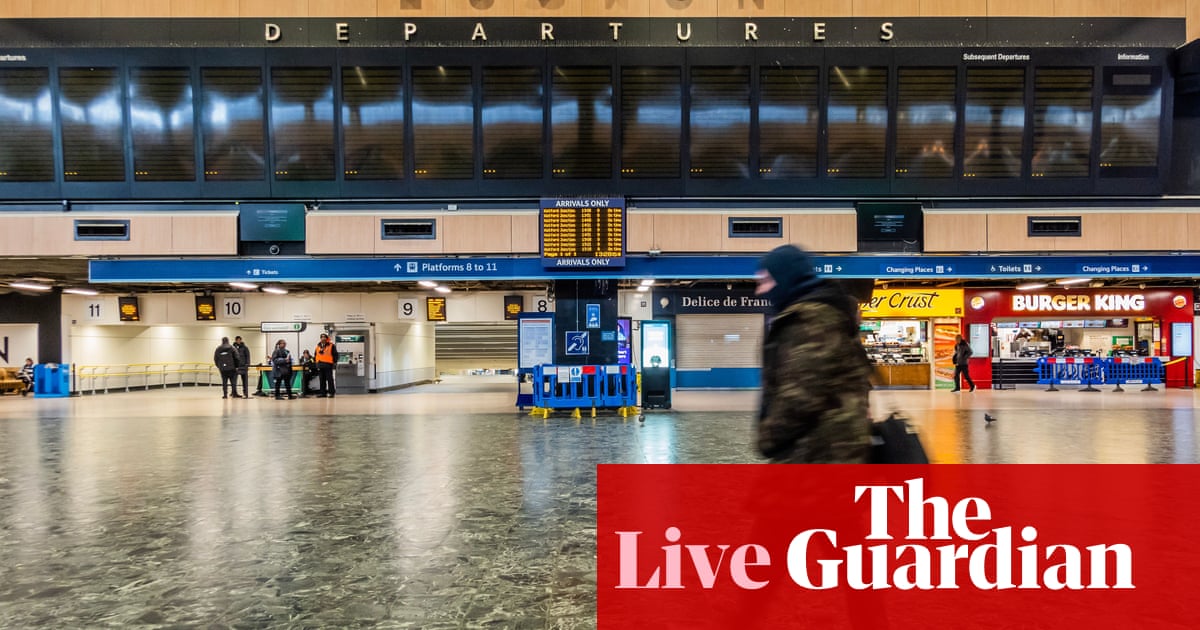
The RMT’s Mick Lynch said that rail strikes planned around Christmas would still go ahead but added that the union had “started a dialogue” after a first meeting with the new transport secretary, Mark Harper.
The Rail, Maritime and Transport union general secretary said he did not expect the secretary of state “to be at the table” but had been promised a “constructive” letter setting out his position – and said Harper had “got rid of the bellicose nonsense” from one of his predecessors, Grant Shapps.
However, Lynch ruled out calling off the eight days of strikes in December and January. He said: “If we call off the strikes, we’ll never get a settlement … My members won’t forgive me. I’ve given a commitment – until we get a tangible outcome, the action will be on.”
Harper said the meeting at the Department for Transport was “constructive” with “an open and honest conversation about the serious challenges facing the railways.”
He said they had found common ground, adding: “There is a deal to be done, and I believe we will get there – I want to facilitate the RMT and the employers to reach an agreement and end the dispute for the benefit of the travelling public.”
Speaking in the Commons earlier, Harper told MPs: “I want a sustainable, thriving rail network – but with 20% of passengers not having returned following the Covid pandemic, reform is vital.
“I would urge all trade union leaders to get back around the table with employers to hammer out the detail of that reform.”
He added: “I very much want the strikes to not take place … but in order to pay for a better offer for rail staff, we need reform.”
Harper was due to meet the interim leader of the Transport Salaried Staffs’ Association, Frank Ward, as well as Lynch on Thursday, and the Aslef general secretary, Mick Whelan, next week.
On Tuesday, announcing new strike dates, Lynch said the Department for Transport had blocked rail industry bosses from offering a deal, after negotiators had told the RMT they were scheduled to do so.
The RMT has announced four weeks in total of industrial action that is likely to see further disruption across Britain at Christmas, as well as almost two weeks of minimal services in December and January.
Thousands of members of the RMT working for Network Rail and 14 train operating companies will twice strike for two 48-hour periods in a week. The first strikes, on 13-14 and 16-17 December, will cause disruption over six consecutive days in the run-up to Christmas, with a similar effect on services through further strikes on 3-4 and 6-7 January.
The strikes will mean only a minority of services can run on main lines while smaller lines will have no trains at all. About 20% of scheduled trains have run, between 7am and 7pm, on other strike days so far this year.
An RMT overtime ban from 18 December until 2 January is also likely to affect services during a period of significant engineering works. Network Rail and train operators are still establishing how the ban, hitting rest day working over the festive period, will affect trains.
Train services around Britain will also be hit hard when drivers in the Aslef union strike on Saturday 26 November. Drivers at 11 train companies will go on strike, stopping all services at most affected operators.
Aslef has now suspended strike action on the London Overground, after a pay offer from Arriva. Whelan said the offer meant they had now “negotiated or been offered a pay deal by every operating company except those under contract with the Department for Transport”.
The Rail Delivery Group said passengers should only travel by train if necessary this Saturday and check their journey in advance, and expect some disruption on Sunday with a reduced timetable in operation.
The Aslef strike on Saturday will take place on Avanti West Coast, Chiltern Railways, CrossCountry, East Midlands, Great Western Railway, Greater Anglia, London North Eastern Railway, Northern Trains, Southeastern, Transpennine Express, and West Midlands Trains.












